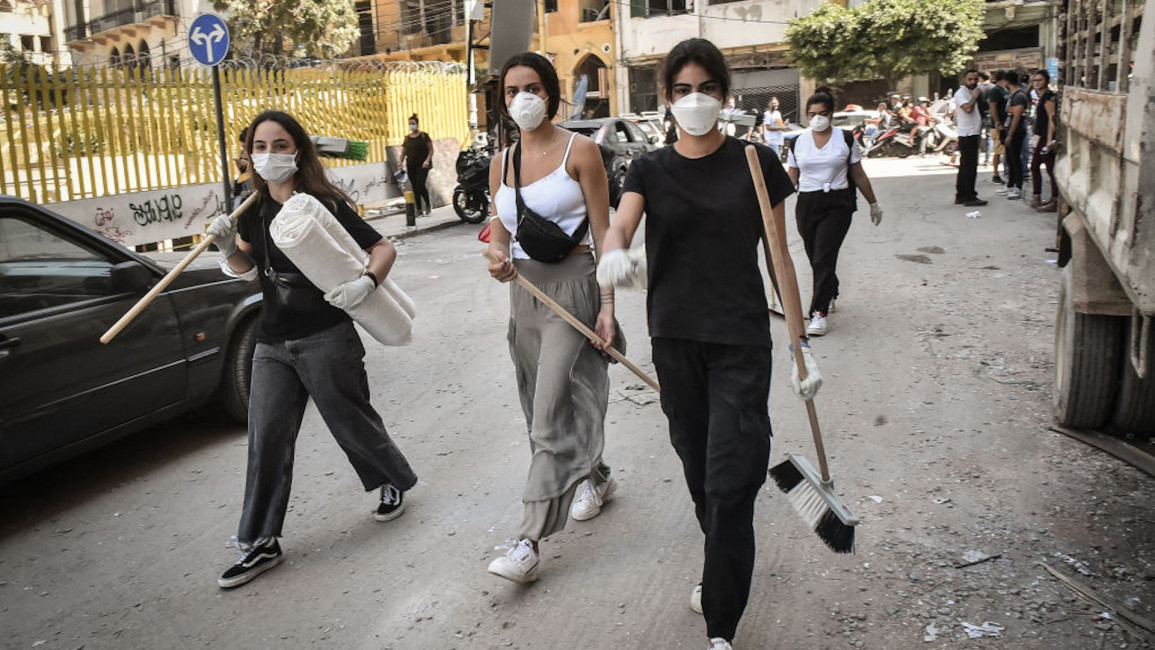Lebanese mobilise to clean up Beirut after deadly blast
Over 130 people were counted dead and more than 4,000 were left injured in a blast that rocked Beirut on Tuesday evening.
While many are blaming corrupt politicians and authorities for 2,700 tonnes of highly combustible fertiliser left in the city's port for six years, residents are also taking matters into their own hands by cleaning up the mess caused by the disaster.
From Lebanon Street to Armenia Street, people mobilised in the collapsed northern neighbourhood armed with gloves and masks - this time not to protect themselves from a deadly coronavirus, but to breathe through the dust and debris overtaking their city.
"We decided to volunteer this morning when we were home. We started off as four people and now we're around 10, but we're growing more and more. Let's take it day by day," said a resilient volunteer, calmly sweeping a dusty road, in a Bloomberg video.
Twitter Post
|
The city's governor, Marwan Abboud, said almost half of the city is destroyed or damaged, and 300,000 people risk finding themselves homeless.
"I saw groups of people that are organising their own cleanup and rescue efforts. In just one neighbourhood, I saw hundreds of people," said journalist Nada Homsi to NPR.
"You really get the sense that people are not waiting around for the government to lead this effort because you have to remember that for the last year, this country has been collapsing due to corruption, power outages, lack of cash and food. So the political class has lost a lot of people's confidence, and now people want to know how this explosion could have happened."
On social media, residents are asking for help cleaning up underfunded hospitals which were already having to cope with a flood of coronavirus patients and suffered from the worsening economic condition of the country.
Hundreds of users are coordinating where to meet, what cleaning supplies to bring, and who to contact for further information. All this alongside the tragic pictures and videos of the destroyed buildings and smashed cars flooding online platforms.
"The group clean-up going on in Mar Mikhael right now is all kinds of inspiring," Dylan Collins from AFP captioned a video of dusty volunteers carrying large garbage bags full of scraps of their homes.
Twitter Post
|
People have even mobilised to search for residents' pets, caught in the chaos of the explosion. Local charity, Lebanon Animals, called for volunteers to help them rescue hundreds of animals that have escaped their owners' shattered homes, terrified by the blast.
This spontaneous initiative mirrors that of the eager street clean-ups after the popular uprisings in October 2019, which called for the end to a corrupt regime of the Lebanese political elite.
Back in October, Lebanese people were emboldened by the hopes of a brighter future, but soon after they became witness to the worst economic crisis the country has ever seen, catalysed by the outbreak of the coronavirus.
The local currency is in freefall, amid a severe dollar shortage and severe rising unemployment, but those on the streets seem to remain resilient in the face of yet another threat to the country’s future.
Follow us on Facebook, Twitter and Instagram to stay connected



